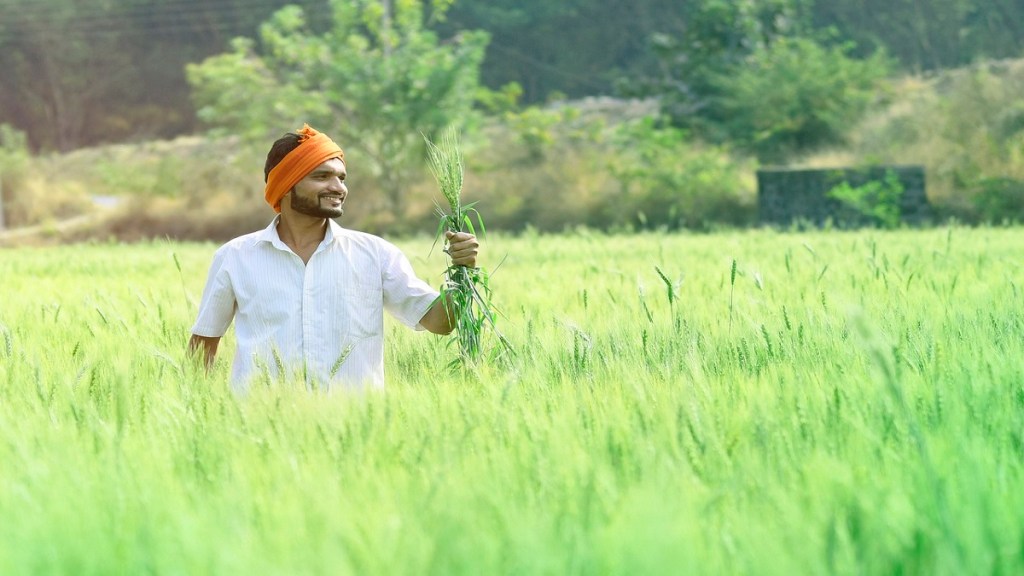By Anil Kumar SG
Credit and finance for MSMEs: ‘Entrepreneurship’ and ‘FPO’ (farmer-producer organization) may seem to have no connections, as concepts, superficially. But when looked deeper, these are linked in several ways and some of those nuanced aspects are discussed in this column. An entrepreneurial trait is exhibited in those who are not risk averse, dare to think out of the box with a great vision, explore uncharted territories to come up with new ideas and innovations and develop a strong sense of resilience without the fear of failure and with perseverance. All these are necessary for an FPO to survive, thrive and grow to become a commercially successful business enterprise.
First, the concept of FPOs must be understood to ascertain why they should think like an entrepreneur. In the past 40 years, the share of smallholder and landless farmers has surged to around 86 per cent, underscoring the need for better bargaining power through collectivization and the concept of FPOs was born. Several schemes such as the Formation and promotion of 10000 FPOs’ were launched by the government to transform the precarious livelihoods of the smallholder farmers. FPOs can be instrumental in providing a platform for farmers to congregate, exchange knowledge, and collaborate on farming.
But FPOs do encounter several constraints as they struggle to secure funding from traditional financial institutions like banks due to their scanty collateral, low equity base, lack of credit history, and the high risks (weather, price etc.,) associated with agriculture. According to publicly available sources, there are around 15,000 FPOs registered, which are promoted by various government and non-governmental entities across India. However, upon careful introspection, only a small percentage of FPOs are able to survive and grow to become commercially profitable entities while others fall by the wayside owing to the problems mentioned above. In contrast, the successful ones are exhibiting those traits that are labelled as ‘entrepreneurial thinking’ as explained below.
Also read: How digital infrastructure drives small merchants’ financial inclusion in rural India
Business mindset focusing on customer needs is one of the most important prerequisites for success. Similar to those successful entrepreneurs who are focused on meeting the needs of their customers, FPOs can benefit from understanding the needs of their customers (B2B and B2C) and working to meet those needs. Entrepreneurs have a business mindset and are focused on growing their businesses. Similarly, FPOs need to have a business mindset and focus on generating profits, reducing costs, and increasing efficiency.
Entrepreneurial thinking involves constantly scanning the market for new opportunities and identifying unmet needs. By adopting this mindset, FPOs can identify new markets for their products, explore new product lines, and even find new ways to collaborate with other organizations to increase their reach. For example, sensing the growing demand for processed and packaged foods, several FPOs across Tamil Nadu that are dealing with pulses, millets, and special varieties of rice, installed primary and secondary processing and packaging units. Some of them started their own brands besides supplying to big food processing companies. Similarly, a group of FPOs in Andhra Pradesh, from an area dominated by tribal population sensed the demand for organic coffee and invested in exploring B2B supply opportunity. Today, the FPOs are catering to one of the reputed global coffee chains and bringing higher realization to their member farmers.
Entrepreneurs are comfortable with taking calculated risks. Similarly, FPOs can benefit from this mindset by being willing to take measured and calculated risks in trying out new crops or farming practices, investing in new equipment, or exploring new markets. This is, however, easier said than done given the low patronage among the members and lack of support including financial. Here, the role of the ecosystem players assumes importance as access to finance and timely availability of working capital can help an FPO take the leap of faith by taking calculated risks.
Also read: How technology is paving the way for India’s rural manufacturing to go global
Entrepreneurial thinking involves being open to new ideas, experimenting with new processes, and trying out new products. FPOs can benefit, for example, by digitizing their business operations to leverage the power of data to aid better decision-making. Similarly, the introduction of new varieties (e.g., an FPO in South Tamil Nadu is working with a renowned food company on a buyback arrangement for a special variety of chilli), new farming practices, exploring new technologies, and diversifying their products.
Entrepreneurs need to excel at collaborating, networking, and building relationships. Similarly, FPOs must build relationships with their peers i.e., FPOs in their State and other States, their suppliers, and potential buyers to expand their market reach and enhance their bargaining power. Entrepreneurs often collaborate with others to achieve their goals. By adopting this approach, FPOs can work together (as Federations of FPOs) and/or with other organizations to leverage their strengths and achieve common goals. This could include working with local governments, NGOs, or even private sector companies.
The time has come to take a hard look at the current FPO ecosystem wherein the farmer collectives must start thinking like entrepreneurs to navigate the constantly changing market and succeed in the competitive environment. To achieve this, it is necessary that their access to the three most critical aspects – capital, markets, and technology – is enhanced through an effective and conducive policy framework. With enhanced access to these enablers and by taking calculated risks, innovating, and collaborating with others, FPOs can enhance their profitability, and make a positive impact on the livelihoods of their members.
Anil Kumar SG is the Founder & CEO of Samunnati. Views expressed are the author’s own.

